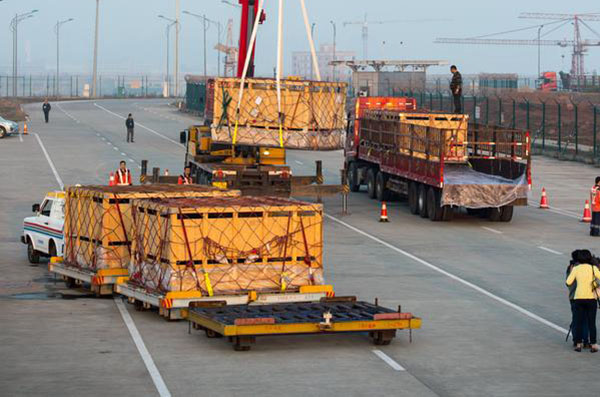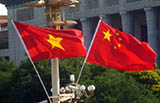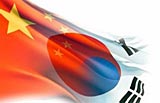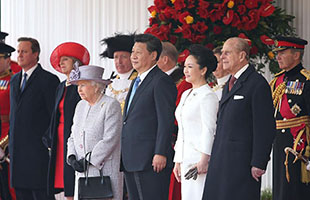Australian senate passes China-Australia FTA legislations
(Xinhua) Updated: 2015-11-09 20:20
 |
|
Cargos carrying beef cattles imported from Australia arrive at the Chongqing Jiangbei International Airport in Southwest China's Chongqing municipality, Oct 21, 2015. [Photo/Xinhua] |
CANBERRA - The Australian Senate on Monday passes legislations surrounding the China-Australia Free Trade Agreement (ChAFTA), clearing the final hurdle to enact the agreement.
The Customs Amendment (China-Australia Free Trade Agreement) Bill 2015 and the complementary Customs Tariff Amendment (China-Australia Free Trade Agreement) Bill 2015 passed the Senate after being approved by the House of Representatives on October 22, 2015.
Trade and Investment Minister Andrew Robb said Australian businesses are another step closer to realizing the enormous opportunities created by ChAFTA.
"The Government has worked hard to ensure this high-quality agreement with our biggest trading partner enters into force before the end of the year, and today's vote marks a significant milestone in that process," Robb said.
"Entry into force this year will see an immediate round of tariff cuts, followed by a second round of cuts on 1 January 2016, allowing the benefits of the agreement with China to flow quickly through to Australian exporters and consumers."
Following the vote, Robb acknowledged the support of the opposition, which he said continued Australia's long-standing tradition of bipartisan support for freer trade.
ChAFTA was previously objected by the opposition, which had expressed concerns over visa regulations surrounding foreign projects.
Labor had said by bringing in cheaper workers from China, large companies could pay them significantly less than the Australian standard.
The government and the opposition struck a deal on October 21 on the changes to Australia's legislation, which will ensure that Australian workers are offered work first, and any workers coming in from China must be licensed and fairly paid as not to undermine Australian pay, conditions and standards.
This deal leads to a bi-partisan support of the China-Australia trade deal.
Shadow Trade Minister Penny Wong said on Monday at the Senate that the legislation required in order for ChAFTA to be approved in Australia would simultaneously protect Australian workers and conditions, while also "delivering jobs" and scope for businesses to grow in the future.
ChAFTA will also result in the removal of a number of tariffs, such as those on Australian beef, dairy and wine coming into China, while Australians will have access to cheaper Chinese goods, such as electricals and homewares.
"The agreement will enter into force when Australia and China have both completed their domestic treaty, making processes, and we're working with China for this to happen as soon as possible," Robb said.






